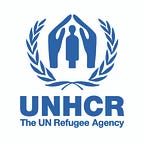Four ways refugees have kept school going during the COVID-19 pandemic
The latest Education Report from UNHCR offers inspiring stories of refugees continuing their education despite the odds against them. Read and learn.
By Filippo Grandi, UN High Commissioner for Refugees
Schools closed, exams cancelled: COVID-19 has played havoc with children’s education worldwide. According to UN figures, around 1.6 billion learners across the world, including millions of refugees, have had their education disrupted.
However, as so often when faced with seemingly insurmountable challenges, the determination of refugees to secure life-changing educational opportunities has again come to the fore. In a report entitled “Coming Together for Refugee Education,” UNHCR, the UN Refugee Agency, highlights a series of inspiring examples of how young refugees have kept going through the pandemic.
The 2019 data in the report is based on reporting from 12 countries hosting more than half of the world’s refugee children. While there is 77% gross enrolment in primary school, only 31% of youth are enrolled in secondary school. At the level of higher education, only 3% of refugee youth are enrolled.
Far behind global averages, these statistics nevertheless represent progress. Enrolment in secondary education rose, with tens of thousands of refugee children newly attending school — a 2%-point increase year on year.
But the pandemic threatens to undo this and other crucial advances. And for refugee girls, the threat is particularly grave. Based on UNHCR data, the Malala Fund has estimated that as a result of COVID-19, half of all refugee girls in secondary school will not return when classrooms reopen this month.
Refugees’ desire for education is clear. The challenge now is to give their determination global support. Our report highlights several examples of innovative and collaborative ways refugees and teachers, with the support of governments and UNHCR’s partners, kept going during lockdown.
① All we need is … Radio Gargaar
In normal times, Amina Hassan would stand at the front of her classroom of about 100 children at a school in the huge Dadaab refugee complex in eastern Kenya. These days, she has had to become a broadcaster instead — with one of the world’s more unusual phone-in radio shows.
Dadaab has more than 67,000 students attending just 22 primary and six secondary schools, where refugee children and youth, along with the host community students that share their classrooms, receive a certified education supervised by a national authority.
Amina took to the airwaves to broadcast lessons to her Grade 5 class on a community station called Radio Gargaar, meaning “help” or “assistance” in Somali. “They sometimes call me at the studio to ask questions,” she says. “I believe they are learning even though I can’t see them.”
② The classroom on wheels
Dancing, singing, painting — and learning about coronavirus — have been on the agenda for a group of young Venezuelans in La Paz, Bolivia. But instead of going to school, the school has come to them.
Aula Movil (Mobile Classroom) is a project being piloted by UNHCR and partner organisations for Venezuelan refugee and migrant children who have had no access to formal educational, distance learning or recreational activities since lockdown. Even though the staff are dressed in personal protective equipment from head to foot, the youngsters soon get used to them.
In addition, the class has provided psychosocial support and engagement for the Venezuelan community, visiting accommodation centres where UNHCR is providing shelter for Venezuelan families.
③ Online or offline, making education work
Thanks to a partnership dating back to 2018, UNHCR and partners in Uganda were able to accelerate a connected education project giving teachers and students access to a wide variety of open resources.
Many displaced communities live in areas where internet connectivity is poor or non-existent, and where getting hold of smart devices is out of the question. An open source learning platform called Kolibri, developed by the non-profit organisation Learning Equality, is designed to get around those issues by being tailored for a variety of low-cost, off-the-shelf devices and other “legacy” hardware.
Once content has been “seeded” onto a device — either at a factory or in an area that has an internet connection — that device can share it with others over an offline local network.
④ Lessons in the open air
With all the schools closed, Jean Aimé Mozokombo simply took his classes outside.
In northern Democratic Republic of the Congo (DRC), more than 600 refugee students from Central African Republic were able to continue their preparations for the national primary school final test. Jean Aimé was one of several teachers from the host community who strove to keep their young students busy.
For months, he has been organizing learning sessions at Inke refugee camp, in North Ubangi Province, outside the homes of his students. His classes are limited to six at a time to ensure proper physical distancing.
Even without the usual facilities, these outdoor classes are vital. “We are doing the best we can as the national primary education final test is essential for students to enrol in secondary school,” said Jean Aimé.
From refugees and host communities to teachers, private sector partners, national and local authorities, innovators and humanitarian agencies … all have found numerous ways to keep education going in the face of the pandemic. It has been a demonstration of partnership, generosity and creative thinking, allied to the passion and determination of millions of young people.
UNHCR, the UN Refugee Agency, is a global organization dedicated to saving lives, protecting rights and building a better future for refugees, forcibly displaced communities and stateless people.
